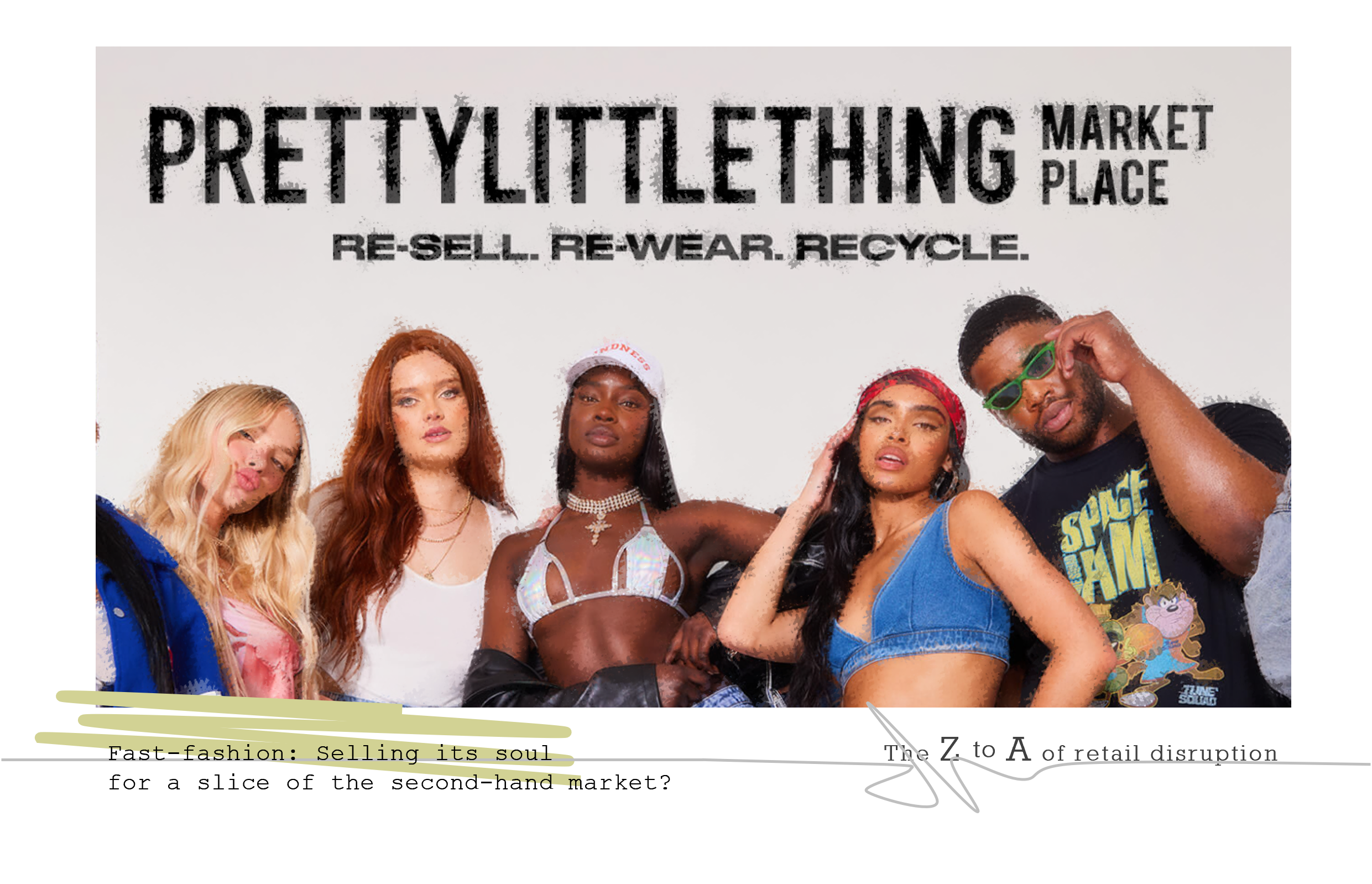Fast-fashion: Selling its soul for a slice of the second-hand market?
As the resale market grows and evolves at a pace, it is more important than ever to dig deeper behind the businesses involved, particularly if your motives for buying second-hand are to reduce the volume of new product sales, and to divert used products away from landfill.
There is no shortage of choice when it comes to buying second hand. We have the businesses who are genuinely motivated by sustainability. Their origins may be quite varied, from charities to business entrepreneurs, some physical only, some purely digital.
There are the resellers who specialise in vintage and collectables. Here, you are part of a community, very much seeking out product rarities. Buying and selling go hand in hand with the setting up of vintage sites as ‘side hustles.’
We should not forget sustainable fashion brands, who have built recycling, upselling, and re-selling into their sustainable models from day one, or who have genuinely absorbed it later into their propositions. Names such as Nudie and Patagonia spring to mind.
And of course, we have the reseller facilitators, assisting individuals who want to sell their own possessions directly to others. These include Depop and Vinted.
And whilst these businesses and models are as varied as the products they sell, they all fundamentally contribute to the same sustainable end. That buying second-hand is a valid commercial alternative to buying new. And that to one degree or another they all help to reduce the sales of new products and avoid used products becoming waste.
The final group is quite different.
As the money spent on second hand increases, and diverts from new sales, watchful fashion brands are joining the re-sell party, running it alongside their primary businesses of selling new products…selling lots of new products. Ironically, but perhaps not surprisingly when you look at the figures, some of the largest fast-fashion brands are entering into the re-sell market.
According to a global report conducted by Thredup with analysis by market research firm GlobalData – the resale market is growing at a rate eleven times faster than traditional retail and should be worth $84 billion by 2030, with fast fashion predicted to be worth about $40 billion.
Whilst some fast-fashion entrants make vague references to sustainability, and others such as Zara are clearly working out the commercial viability of turning revenue from resell, it would be naïve to think that brands such as Shein and Boohoo have any other motive than using re-sell as a greenwashing opportunity to attract and keep more customers locked into their fast-fashion machines.
Are they simply following the money, and using re-sell to stimulate more new sales than ever, with a extra bit of pocket money on the side? Predictably, their sustainability planning is usually as short-term and threadbare as many of the products they sell.
Unfortunately, with more fast-fashion entrants joining the fray, the re-sell sector is at risk of being seen as little more than a ‘Bandwagon,’ according to the popular press. For the likes of Pretty Little Thing, re-sell may well be a passing fad, but such coverage shows an alarming disregard for the many established and credible re-sell businesses.
I guess we should be grateful that re-sell is achieving a higher profile these days, even if it not always the one we want. However, it is to be hoped that the ethical, sustainable, and charitable re-sell sector is not tarnished by what is only a ‘fast-fashion bandwagon!’
Let us hope that the re-sell sector does become a significant mainstream channel to buy and sell clothes and other goods. I am also cheered by the ThredUp research, that the younger generation remains the most open towards pre-loved fashion, with 62% of Gen Z and millennials saying they look for a second-hand item before buying a new one.
The future of re-sell should be well cared for, and I trust that this increasing market share will be driven by the best of customer motives, and the best of resellers. Not by those fashion brands who are willing to sell their souls for a slice of the second-hand market.
